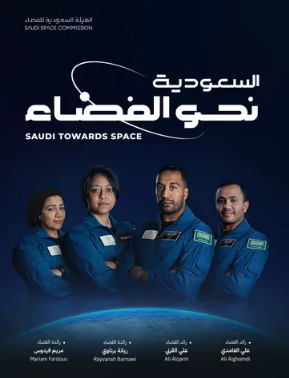Saudi astronauts to research- Saudi Astronauts Conducting Space Research Projects on Cancer, Cloud Seeding, and Microgravity
- Get link
- X
- Other Apps
Learn about the 20 important experiments Saudi Arabian astronauts aboard the International Space Station will carry out. These include cancer prediction and prevention, creating artificial rain, stem cell production, and bioengineering tissues.
Four Saudi Arabian
astronauts aboard the International Space Station will conduct 20 important
experiments related to cancer, cloud seeding, and microgravity research. This
article will explore the experiments in detail.
Cancer Prediction and Prevention: The Saudi Arabian
astronauts will conduct research on cancer prediction and prevention using stem
cell models. This experiment is a follow-up to the first mission in space,
which aimed to reprogram skin cells into stem cells capable of producing
different tissue types. The stem cell models can aid in diagnosing and treating pre-cancer, cancer, and other diseases on Earth.
Artificial Rain for Future Human Settlements: Cloud seeding,
the process of artificially producing rain by seeding clouds with particles,
will be evaluated in microgravity conditions for the first time. The aim is to
develop climate control technology that can be used for future human
settlements on the Moon and Mars. This experiment is crucial for
drought-affected areas and has been adopted by many countries, including Saudi
Arabia and the United Arab Emirates.
Stem Cell Production in Space: The Interstellar Stem Cells
Project aims to gain insight into the effects of microgravity on the production
of stem cells and stem cell-derived products in space. This research can be
useful for regenerative medicine applications on Earth.
Bioengineering Tissues in Space: Bioengineered liver and
kidney tissues will be sent into space to evaluate the effects of microgravity
on the vascularization of thick tissues. This experiment aims to develop
platform technology and methodology that can be useful for bioengineering the
'building blocks' of tissues in space. It could also act as a bridge for
transplanting donor organs into patients.
Conclusion: The experiments conducted by Saudi Arabian
astronauts aboard the International Space Station are crucial for understanding
the effects of microgravity on human health and developing technology that can
be used for future space exploration. The experiments range from cancer
prediction and prevention to creating artificial rain for future human
settlements.
- Get link
- X
- Other Apps

Comments
Post a Comment